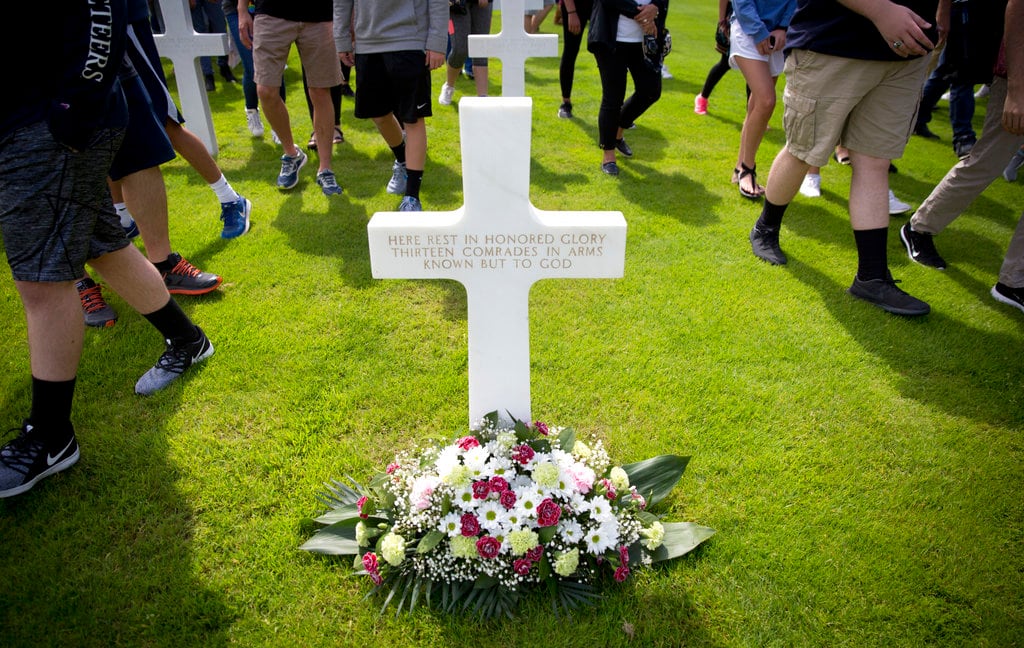Nearly six years after earning a Silver Star during close combat in Germany at the close of World War II, James Hayden found himself surrounded by Chinese forces in Korea along with about 150 fellow soldiers.
"Different units had somehow got there," said Hayden, a sergeant first class at the time. "We fought all night. Next day, when it came daylight, they started picking us off one at a time.
"There was a lieutenant colonel from 2nd Engineer Battalion, and he said, 'We can't take this. We're surrounded. ... The best thing we can do is just hope for the best.' "
The men surrendered on Dec. 1, 1950. Hayden would remain in captivity until Sept. 5, 1953, coming home with severe skeletal problems brought on by malnutrition — ailments that would lead to his medical retirement nine years later as a master sergeant.
It's a personal timeline of heroism, sacrifice and determination — and it skipped about six decades before the Army presented Hayden with the recognition he'd earned.
The 88-year-old received a Prisoner of War Medal and a Korean War Service Medal on Sept. 3 at Joint Base Lewis-McChord, Washington, in a ceremony presided over by Maj. Gen. Terry Ferrell, commander of 7th Infantry Division. The medals came as a result of years of work on Hayden's behalf by friends, family members and finally lawmakers, who were able to refile lost records and compile the necessary paperwork.
"We started going through the different steps to figure out how to help him, and we were told the family wasn't very successful," said Washington state Rep. Linda Kochmar, whose husband was a pilot based out of McChord Air Force Base and flew in Vietnam. "We were just thrilled to be able to help this man, and his family, realize the fruits of what he did to protect his country."
As for the Silver Star, Hayden said during the ceremony that it had been mailed to his address of record instead of presented to him, and that he'd never actually received it.
Making such a comment in the presence of a general officer has its advantages — a Silver Star was procured in less time than it takes to get a pizza delivered, and another presentation was made about 30 minutes after the first wrapped up, according to an Army news release on the event.
"I didn't expect this," Hayden said of the ceremony, according to the release. "I didn't ask for any of it."
Born in 1925, Hayden left Fancy Farm, Kentucky, for the Army in 1944. A year later, then-Sgt. Hayden was near Bechingen, Germany, with A Company, 254th Infantry Regiment, 63rd Infantry Division, looking for Germans in a tunnel. He found them.
"The enemy ... threw a grenade at him and damaged his weapon by rifle fire," according to his Silver Star citation. "After securing another rifle, he re-entered the tunnel. In the ensuing battle, he single-handedly killed two, wounded four, and captured twelve prisoners."
A leg wound weeks later would end his World War II service and earn him a Purple Heart, according to the release.
He returned to combat in Korea and would eventually be taken prisoner along with many others who would not survive.
"I don't know what percentage died, but a lot of them," Hayden said. "I took them over to be buried, but we didn't have so much as a toothpick. ... We never had a shovel, a pick, nothing."
After nearly a year in an Army hospital, Hayden had no thoughts of leaving service.
"I didn't have anything better to do," he said. He switched to the medical field, according to the release, and stayed in until 1962.
"To see that man ... and to hear what he did, it's so amazing," said Kochmar. "They are our heroes, from so many years ago, and then to have them forgotten, for me is very emotional."
Kevin Lilley is the features editor of Military Times.





